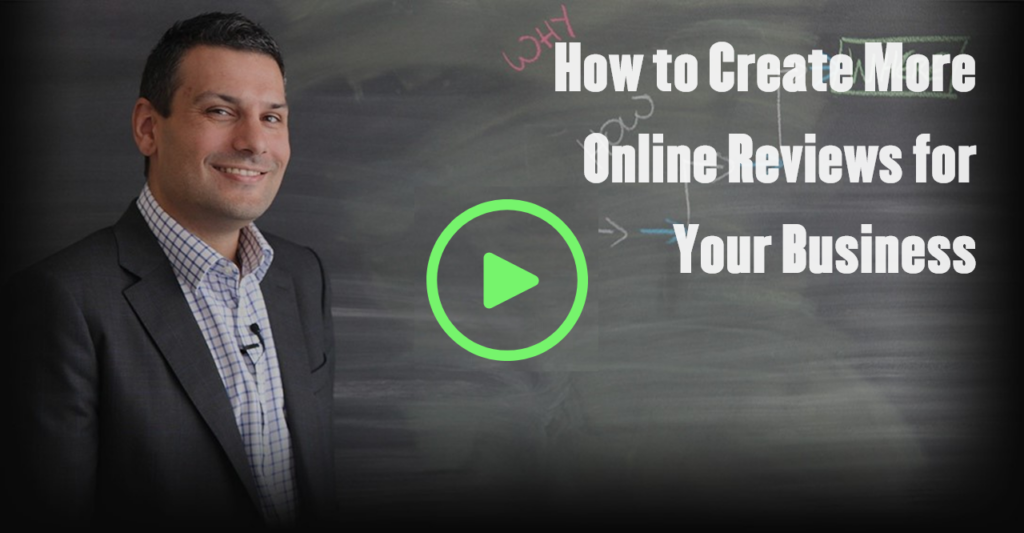Does a Review Count if You Haven’t Reddit?
DATELINE: Brisbane, Australia
In an online discussion this week, I shared some of my personal tax reduction strategies. It was well-received, but as often happens online the discussion turned into some personal criticism.
And then someone dropped this truth bomb: “Jacob Aldridge is great at convincing others he is great.”
You know what? I think he meant that as an insult 😂😂😂
How often do you or your business get insulted online?
I used to put my critics on my Shameless Praise / Business Coach Reviews page, but I know emotionally even one critic can be too many.
Here’s a weird thing in a world of fake news:
- If your online presence is flawless and perfect, many people will assume you faked it!
- Sometimes 1-2 bits of negative feedback, well-handled, can make you look even better
- … especially if the people leaving the bad reviews are clearly morons.
The key is ensuring your have abundant positive reviews, regularly submitted, that drown out any negativity. So how do you achieve that? Read below…
(And hey – if you love me, click here to
make a LinkedIn recommendation so we both look good)

BLACKBOARD FRIDAYS EPISODE #79
I love to travel. My beautiful wife and I have been privileged to see much of the world and going all the way back to our honeymoon almost 20 years ago when we visited Italy with nothing more than a Lonely Planet guide to give us some recommendations about hotels and restaurants.
Nowadays, of course, we wouldn’t imagine traveling anywhere without getting a SIM card, some data, and that most ubiquitous of useful travel tools, online reviews. If you’ve been traveling recently, you’ll know and you’ve probably done exactly the same thing: jumping online to find out everything from which seat to sit in on your airline to which hotel to have breakfast at.
Increasingly, your clients are doing the same thing. They’re looking for online reviews when making a decision about whether to use you or one of your competitors. In this episode (Watch them all | Subscribe yourself), I want to talk through a really practical process that I recommend to my clients they use in order to take responsibility for creating more and more positive online reviews of their business.
Now, it starts by using a tool called NPS, Net Promoter Score. Customer Frame were guest presenters on Blackboard Fridays to discuss this very topic! NPS is not without its flaws – for example, it’s benefit is as much in “being simple” as it is “being predictive”, but there is a wealth of research into how this is a very useful tool for understanding the loyalty, the enthusiasm of your client base and how likely they are to talk well about you in the public.
Very, very simply NPS asks a very specific and deliberate question: How likely is it that you would recommend our product to a friend or colleague?
SME: Simple Methods Empower > EOS: Everyone’s Onerous System
I’ve been through some very long-winded surveys. In an attempt to test customer loyalty they ask you 10, 15, 20 questions. NPS is designed so you only need to ask that one question. And you give the recipient the option to score between 1 and 10.
So how likely is it that you would recommend our product to a friend or colleague between 1 and 10?
The actual NPS process:
- Takes the percentage of your respondents to give you a 9 or a 10
- Removes the percentage that gave you a 1 to a 6, and
- Gives you a specific score which you can then use to benchmark against your industry.
7 out of 10 is a Terrible Review
In the old days, 5 out of 10 was called average. But if you’ve ever rated your Hotel 3-out-of-5 stars, you know that basically translates as “like staying in the fifth circle of hell”.

In their video, Customer Frame break down these three categories: Assassins, Apathetics, and Advocates.
Anyone who replies 1 to 6 is an Assassins!
That might surprise you? Someone who says they’re 6 out of 10 – what could be interpreted as “above average” is actually an Assassin to your business.
In today’s polite world, scoring a 6 means they’re actually more likely to talk poorly about you than talk well.
Seven to 8, Customer Frame called the Apathetics. These are these people that like your business … they won’t badmouth you or talk you down, but you also know they’re not going to go out of their way to recommend you.
What you really want to build are Advocates. Those who score either a 9 or a 10 on the NPS scale. Because it’s only those who are most enthused., who say they are most likely, are indeed most likely to go out and recommend your product service business to a friend or colleague. So in and of itself, NPS is a wonderful exercise to do.
How to Turn NPS Into More Online Reviews
Here’s how I really leverage your score and NPS exercise to create more online reviews for your business, to turn existing clients into more new clients. Importantly, you can do this with other customer surveys as well.
You can send out an NPS by email automatically, for example:
- to every client at the end of their transaction with you, or
- (if you’ve got an ongoing relationship with your clients) maybe on a quarterly, bi-annual, or annual basis.
This will give you not only a score but also the opportunity to see how that changes over time.
Because it’s just one question one answer it’s very, very simple for you to set up in your own email program and website (if you’re that way inclined) or to leverage free online survey tools in order to do so (I’m a huge fan of Fillout, who also leverage AI if you want it). Here’s the really cool part: what happens to that client after they click.
What happens to that client after they click?
The first thing we want to do is make sure these Assassins are neutralized.
So if somebody scores anywhere between 1 and 6 we want to reroute them immediately to another question where we ask for feedback.
“We’re sorry that your experience was not as wonderful as we would like to have achieved. We would really appreciate any feedback you had about how we can improve our service for you or other clients moving forward.”
If there’s something specific – maybe you missed a deadline, maybe there was a miscommunication, a misaligned expectation – this is a great way for you to actually find out what that was and rectify it.
If there’s something in your general process that’s falling down, failing your clients, this is how you find out about it.
And in giving these Assassins the opportunity to be heard and remedied, you’re hopefully alleviating their likelihood to go and moan to somebody else in the marketplace.
For the Apathetics and the Advocates, we send them somewhere different. We’re not looking for their feedback about how wonderful we are. We’ve already got the score. No, instead we want to redirect them to a page that says, “Thank you. We’re so glad you appreciated the service that we provided…AND…”
“To help us grow our business and provide that service to even more excellent clients like you, we would greatly appreciate two minutes of your time to leave us a review on either Google or Facebook.”
Give in this page a link to both Google and Facebook so it’s as easy as possible for those Apathetic and really those Advocates to click on a link which will take them to the Google page of your business or to the Facebook page of your business where they can leave a review and they can rate you.
More Good Reviews = More Good Clients
If you implement this very simple process within your business, not only will you suddenly have a very simple tool for measuring the quality of the service that you and your team are delivering. You’ll also be putting those people who value you into the ability to go online and tell the world how wonderful you are.
And that means that next time somebody you don’t know is searching for you, or for a service in your industry, instead of having one or two reviews written by your mum, you’ll actually have a long list on Google and Facebook of Advocates talking about just how wonderful you are.
Anyway, I’m off to grab wine at that top-rated honeymoon hotel.




